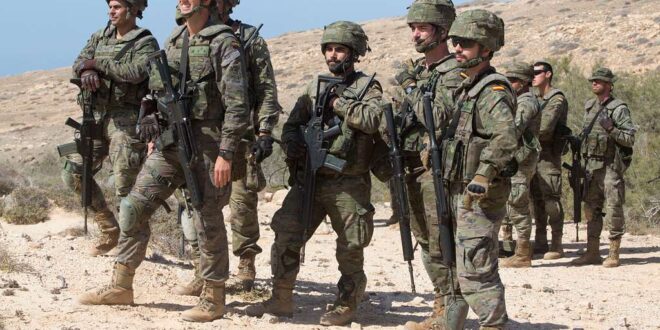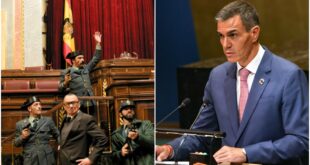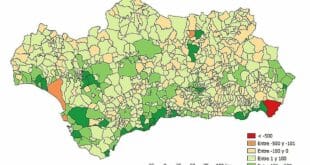SPAIN has informed NATO in writing that it won’t commit to spending more than 5% GDP on defence. Pedro Sanchez warns the alliance, however, that such demands will destroy the country’s welfare system.
In a letter sent to NATO Secretary General Mark Rutte, the Spanish leader made clear that Spain ‘cannot commit at this summit to a specific spending target in terms of GDP’ that is being pushed by the United States.
Sanchez argued that meeting such demands would be ‘incompatible with our welfare state and our worldview.’
He warned the government that to reach 5%, it would be forced to either increase taxes on the middle classes, cut social services and public benefits, or reduce the commitments made to international development and environmental transition.
READ MORE Spain and UK lobby Trump for a delay in the 3.5% NATO defense spending target

Spain’s refusal has increased its isolation within NATO as it is still the only country major to refuse to meet the heightened requirements for defence investments.
Sanchez had earlier promised to increase investment in order to meet the existing 2% GDP goal this year.
The Prime Minister’s stance creates a significant political headache domestically, as his April pledge to invest €10.471 billion in defence was predicated on not reducing social spending by ‘a single euro.’
This commitment was essential to maintain the support of coalition partners who oppose increased military expenditure.
READ MORE Spain is the last NATO country to refuse Trump’s demand that 5% of GDP be spent on defence
Sanchez told NATO Spain estimated it would need to spend only 2.1% GDP, according calculations made by its armed forces to purchase and maintain all equipment, personnel, and infrastructure that the alliance requires.
He said: “For Spain to commit to a 5% goal would not only unreasonable, but counterproductive.”
Instead of accepting NATO demands, the Spanish Government proposes its formula which would effectively exempt Spain the 5% requirements.
Sanchez is advocating for a ‘3.5+1.5′ model, where 3.5% would go to traditional military spending on tanks, weapons and aircraft, whilst the remaining 1.5% could be counted from broader security-related investments.
The Prime Minister is pushing for NATO to adopt ‘a more flexible approach’ that would ‘make the spending target optional, or one that excludes Spain from the spending target.’
READ MORE NATO puts aside rivalry and sails a Spanish-built frigate with a British carrier group through the Strait of Gibraltar.
He pointed out that ‘similar exceptions have been made in the past for other allies.’
This would essentially allow NATO to retain the 5% target in official declarations whilst only applying it to allies who choose to pursue it, giving Spain an escape route from what Sanchez described as an ‘unreasonable’ financial burden.
The dispute is a reflection of growing tensions in the alliance, primarily due to the perception that the world is becoming more dangerous, especially from Russia. Member states are also balancing military spending with domestic priorities.
 Costa News Spain Breaking News | English News in Spain.
Costa News Spain Breaking News | English News in Spain.







